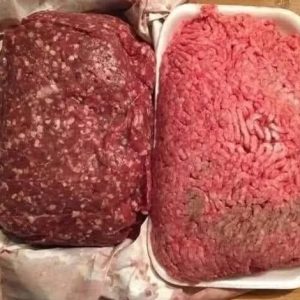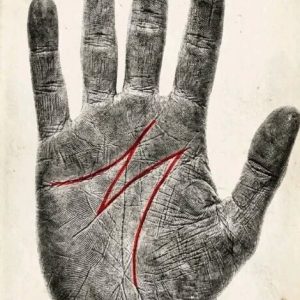I’m 73 years old, and since my wife passed away eight months ago, the house has felt unbearably quiet.

We never had children. It was always just the two of us—forty-three years of shared mornings, shared worries, shared laughter. She used to say the house remembered our voices even when we weren’t speaking. Now, it remembers only mine.
Most days, I keep the TV on just to hear something other than my own thoughts.
That Thursday, I drove to Walmart to buy groceries. Nothing special—milk, bread, soup, the same things I’ve bought every week since she died. As I pushed the cart back toward my car, the wind cut through the parking lot like a blade. It stung my face, numbed my fingers.
That’s when I noticed her.
She stood near the far edge of the lot, half-hidden between parked cars. A young woman, barely more than a girl, holding a baby wrapped in what looked like a thin bath towel. She wore only a light sweater, the kind meant for autumn, not for a winter afternoon like this.
She was shaking so hard I could see her knees trembling.
I stopped walking.
Something in my chest tightened, the same way it used when my wife used to forget her gloves in the cold.

“Ma’am?” I called out gently. “Are you okay?”
She turned toward me slowly. She tried to smile, but her lips were already turning blue.
“He’s cold,” she whispered, looking down at the baby. “I’m… doing my best.”
The baby made a small sound—not a cry, just a weak little breath. That was all it took.
I didn’t hesitate. I didn’t weigh the pros and cons. I didn’t think about myself at all.
I unbuttoned my heavy winter coat—the last coat my wife ever bought for me—and stepped closer. I draped it carefully over her shoulders, making sure it covered the baby completely.
“Take my coat,” I said. “Your baby needs it more than I do.”
Her eyes filled instantly. Tears spilled down her cheeks as she shook her head.
“Sir… I can’t. That’s yours.”
“You can,” I said softly. “Please. Let’s get you warm.”

Inside the Walmart café, I bought her a bowl of hot soup and a coffee. She cradled the cup with both hands like it was the first warmth she’d felt in days. The baby slept against her chest, finally shielded from the wind.
“We haven’t eaten since yesterday,” she admitted quietly, barely meeting my eyes.
My chest ached.
“Is there someone you can call?” I asked gently. “Family? Friends?”
She shook her head. “It’s complicated. I don’t want to talk about it. But… thank you. Truly.”
I could tell she was frightened—not just cold, but wary. Like too many questions might send her running. So I didn’t push. I didn’t pry.
I just made sure she ate. That the baby stayed warm.
Before we parted ways, she held my coat tighter around her and whispered, “I won’t forget this.”
I watched her walk away, the coat nearly dragging on the ground, and felt something strange in my chest—like my wife had just nodded in approval.
I believed that was the end of it.
A week later, just as I finished dinner, someone began pounding on my front door.
Not knocking—banging.
My heart jumped. No one ever came by anymore.
When I opened the door, two men stood rigidly on my porch. Black suits. Polished shoes. Serious expressions.
“Can I help you?” I asked.
“Mr. Harris,” one of them said evenly, “are you aware of what you did last Thursday? That woman and her baby—”
Before I could answer, the other man cut in sharply:
“YOU’RE NOT GETTING AWAY WITH THIS.”
My stomach dropped.
“Getting away with what?” I asked, my voice steady but my hands trembling.
They asked to come inside. I let them in.
“Last Thursday,” one said, “you gave a young woman your coat in the Walmart parking lot.”
“Yes,” I replied. “She needed it.”
“That coat,” he continued, “belonged to your late wife.”
“Yes,” I said again. “And?”
They exchanged a look. Then one of them pulled out a folder and placed a photograph on the table.
It was my coat.
Wrapped around that young woman in a hospital bed. The baby was bundled safely in her arms. Tubes. Monitors. A nurse in the background.

“That woman is my sister,” the man said quietly.
“She collapsed that afternoon,” the other added. “Hypothermia. Severe exhaustion. Hunger.”
My heart pounded.
“The doctors said if she’d stayed outside much longer…” He didn’t finish the sentence.
They told me she had disappeared years ago, fleeing an abusive situation. That she’d been living in shelters, hiding, afraid to be found.
“The hospital staff found something in the coat,” one of them said.
“A note,” the other added.
My breath caught.
My wife had slipped it into the lining years ago.
Just in case someone else ever needs warmth. Love doesn’t expire.
“She read it while lying in the ER,” the man said. “She cried harder than we’ve ever seen her cry.”
They looked at me differently now. Softer.
“That’s why we’re here,” one said. “You’re not getting away with saving her life.”
They handed me a letter. Her handwriting was shaky but clear.
You didn’t just give me a coat. You reminded me I mattered. You saved my baby. Please know your wife’s kindness is still alive.
When they left, the house was quiet again.
But for the first time in months, it didn’t feel empty.
It felt warm.





